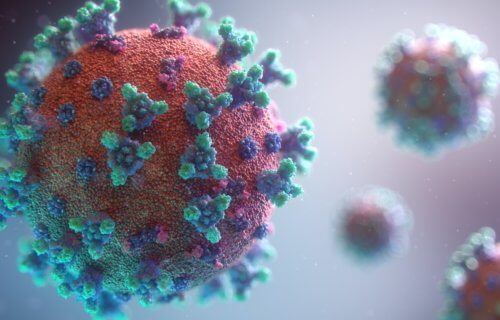NEW YORK — The latest sub-variants of the Omicron COVID-19 strain appear to be even more skilled at eluding vaccines and antibody treatments, according to a troubling new report. Researchers from Columbia University say these new sub-variants (BA.2.12.1, BA.4, BA.5) are largely driving the latest surge in U.S. COVID infections.
These three new sub-variants are spreading all over the globe at a rapid rate, according to the research team. Estimates show that BA.4/5 now accounts for over 50 percent of new COVID-19 cases in the United States. Due to several new mutations in their spike proteins, scientists believe these sub-variants are even more transmissible and contagious than earlier versions of Omicron.
This important work was led by David D. Ho, MD, director of the Aaron Diamond AIDS Research Center and the Clyde ‘56 and Helen Wu Professor of Medicine at Columbia University Vagelos College of Physicians and Surgeons.
“The virus is continuing to evolve, as expected, and it is not surprising that these new, more transmissible subvariants are becoming more dominant around the world,” Dr. Ho says in a university release. “Understanding how currently available vaccines and antibody treatments stand up to the new sub-variants is critical to developing strategies to prevent severe disease, hospitalizations, and deaths—if not infection.”
Dr. Ho and his team analyzed how well antibodies collected from two groups neutralized the new sub-variants: those receiving at least three doses of an mRNA COVID vaccine and people receiving two vaccine shots before a breakthrough Omicron infection.
Researchers didn’t include those who did not receive a booster shot. Why? A prior study had found two vaccine doses alone provide little protection against earlier Omicron variants.
New Omicron strains are even beating antibody treatments
The experiments revealed that while BA.2.12.1 is only slightly more resistant than BA.2 among vaccinated and boosted individuals, BA.4/5 is at least four times more resistant. Additionally, study authors also tested 19 monoclonal antibody treatments. Only one was highly effective against both BA.2.12.1 and BA.4/5.
“Our study suggests that as these highly transmissible sub-variants continue to expand around the globe, they will lead to more breakthrough infections in people who are vaccinated and boosted with currently available mRNA vaccines,” Dr. Ho explains.
Still, the research team stresses that while these new versions of coronavirus may infect more vaccinated individuals, vaccination is still the best way to avoid serious illness and symptoms.
“Efforts in the United States to develop new vaccine boosters aimed at BA.4/5 may improve protection against infection and severe disease,” Dr. Ho concludes. “In the current environment, though, we may need to look toward developing new vaccines and treatments that can anticipate ongoing evolution of the SARS-CoV-2 virus.”
The study is published in the journal Nature.

